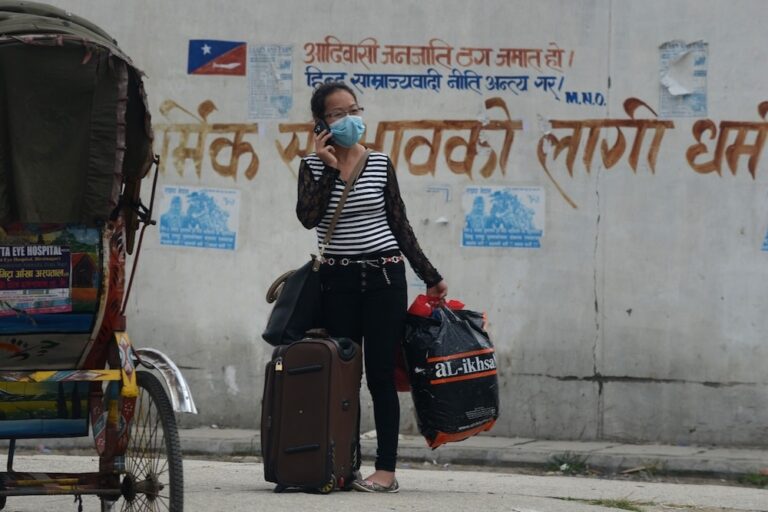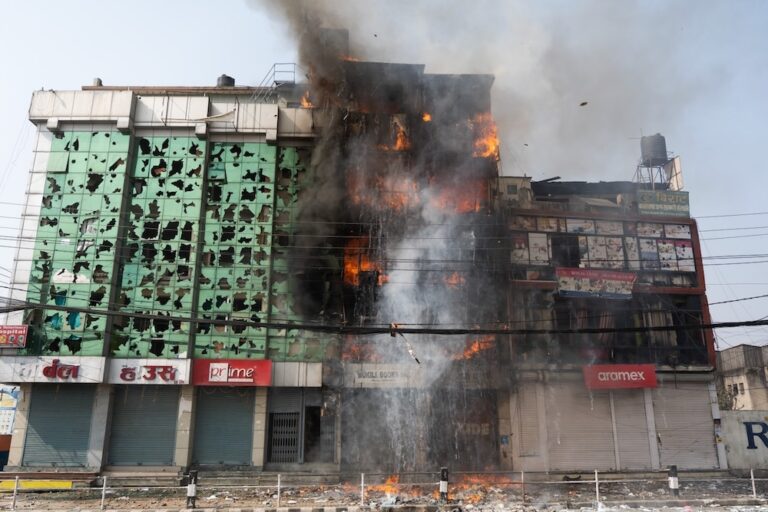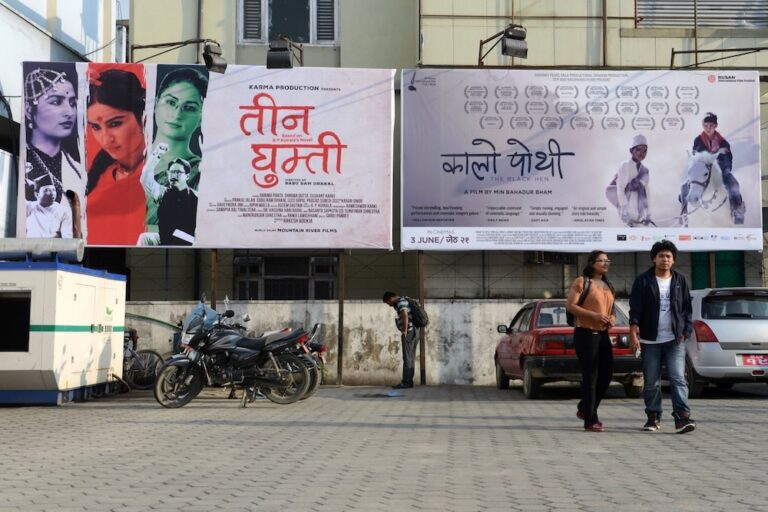(FNJ/IFEX) – The following is an abridged version of an FNJ press release: Summary of Report of High Level Media Recommendation Commission 15 Sept 2006, Kathmandu – The High-Level Media Commission, which was constituted to give recommendations to regulate operation of governmental and private print and electronic media, submitted its report to the prime minister […]
(FNJ/IFEX) – The following is an abridged version of an FNJ press release:
Summary of Report of High Level Media Recommendation Commission
15 Sept 2006, Kathmandu – The High-Level Media Commission, which was constituted to give recommendations to regulate operation of governmental and private print and electronic media, submitted its report to the prime minister today.
Prime Minister Girija Prasad Koirala ensured the commission that the recommendations will be implemented as soon as possible.
The commission was constituted by the government on the demand of the Federation of Nepalese Journalists (FNJ) on July 12 under the chairmanship of MP and senior advocate Radheshyam Adhikari to prepare a report within two months. The commission submitted its report within the prescribed time frame.
The commission presented the following recommendations, among others, on the protection of media independence, effective implementation of the right to information, and institutional development of the field of journalism, with a focus on structural reform of media institutions, legal and constitutional provisions, advertisement policy, foreign investment in media, and regional media reform.
The commission calls for the creation of an Information and Communication Commission to establish the people’s right to information, and a National Broadcasting Authority for the management of electronic media. The Public Service Broadcasting Body for the management of government-owned electronic media and the Press Council should be given the additional responsibility of issuing a code of conduct for electronic and digital journalism.
To ensure that the media sector is protected as the nation’s fourth estate, the commission suggests that the preamble of the Constitution should acknowledge the role of mass media in the establishment of a democratic political system.
Special protection should be made for the lawful representation of women, marginalized, indigenous, dalits, and madhesis in mass media.
Government media should be completely freed from government control. The state-owned Gorkhapatra Corporation should be auctioned off to the private sector. Nepal Television and Radio Nepal should be changed into public broadcast organisations.
Advertisement policy should be categorized into “public welfare”, “public” and “commercial” on the basis of its content, intention and anticipated impact. The state should equally distribute among media outlets all advertisements related to public welfare and public information, and all such advertisements should be distributed through District Development Committee.
The task of supervising and categorizing media should not fall upon the Press Council but should be invested in an independent committee in a transparent manner, and the committee should incorporate advertisers, publishers and media consumers.
Foreign investment in media should enter Nepal in a transparent way. The commission suggests that foreign investment should be allowed in all national-level media, but it should not exceed 49 percent, head management must be Nepali, and all editorial staff should also be Nepali.
Television media should be classified into the categories of Public Service Broadcasting and Commercial Broadcasting, and the state should provide special facilities and privileges to public service broadcasters.
For the encouragement of a national film industry, all existing provisions that require pre-permission to make films should be annulled. A movie grading system should be established. The state should provide grants, privileges and facilities to encourage filmmaking in the various local languages of Nepal.
Digital media should be recognized as mass media to guarantee its independence. There should be open competition among all service provider companies.


